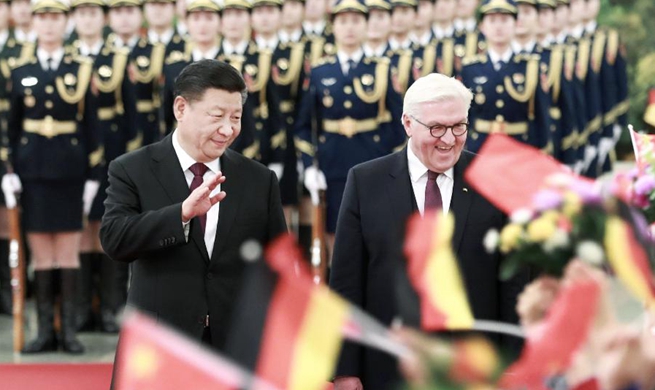PHNOM PENH, Dec. 11 (Xinhua) -- The United Nations in Cambodia has embarked on a research initiative to establish why and how both the Belt and Road Initiative and the 2030 Agenda for Sustainable Development are critical for realizing Cambodia's vision to become an upper middle-income country by 2030.
The UN in Cambodia said in a press release on Tuesday that the UN has been working with a multi-disciplinary and diverse team of experts from Cambodia, China and Singapore.
"On the Belt and Road Initiative and other related topics, we are determined to engage into deep analysis that rests on evidenced-based research," Pauline Tamesis, UN Resident Coordinator in Cambodia, said in the release.
"Our intention is to move beyond the headlines and preconceived ideas, so we can explore sustainable development as it is - complex and multidimensional," she said.
During the dialogue in Phnom Penh, a panel of experts shared their findings and recommendations from their respective research.
The research highlights that Cambodia's economic success is closely linked to the performance of other economies in the region, the release said.
It added that the Belt and Road Initiative provides several opportunities to sustain economic prosperity, along with the 2030 Agenda for Sustainable Development, which has been recently localized by the Cambodian government through the Cambodia Sustainable Development Goals (CSDGs).
The Cambodian government is committed to achieve the 2030 Agenda's vision, Ung Luyna, a member of the Supreme National Economic Council of Cambodia, said during the dialogue.
"While BRI (the Belt and Road Initiative) has offered timely opportunities, Cambodia should have innovative policies and build robust institutions in order to maintain high growth and to achieve goals under the CSDGs," he said.

















